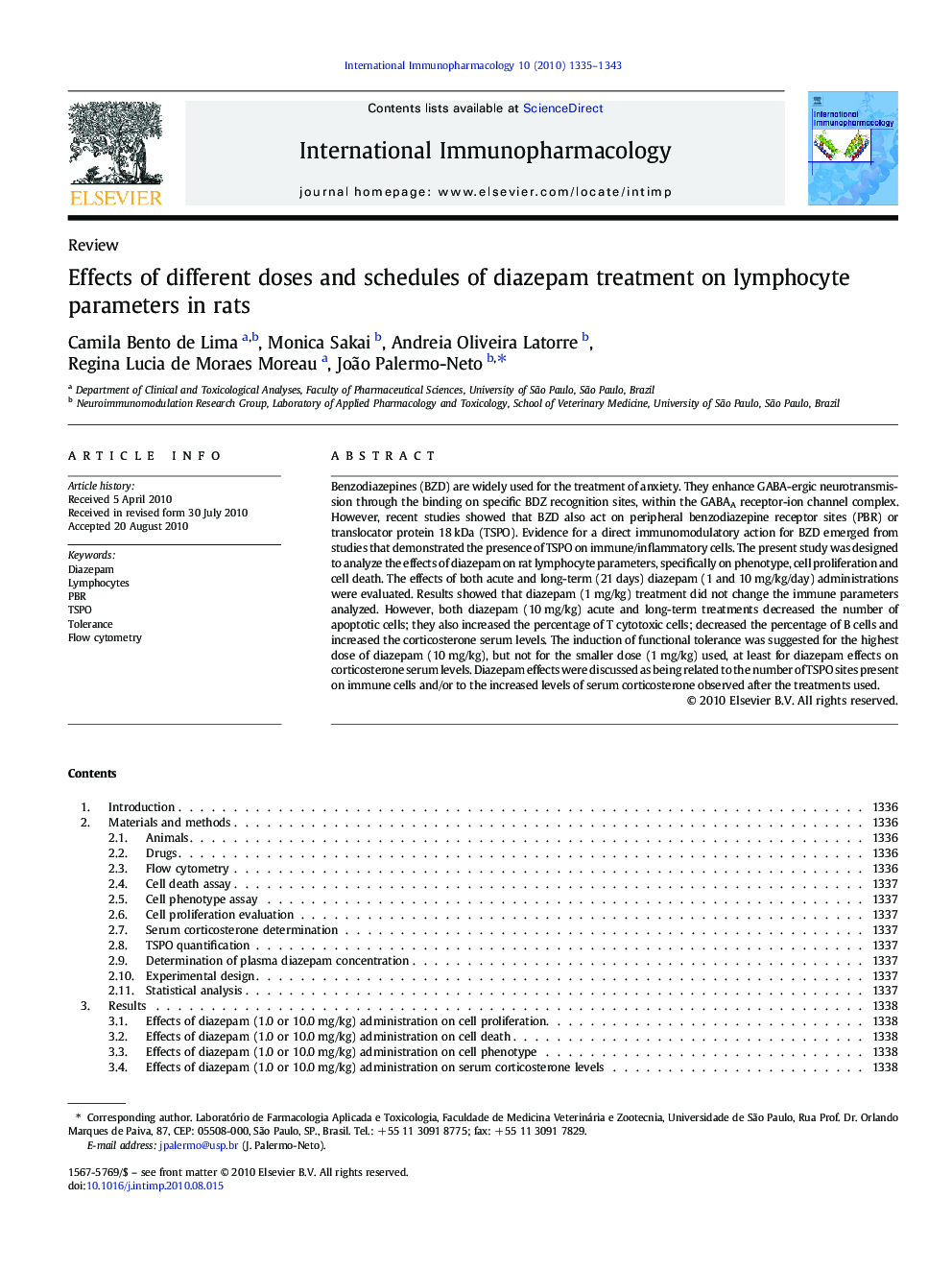| Article ID | Journal | Published Year | Pages | File Type |
|---|---|---|---|---|
| 2541146 | International Immunopharmacology | 2010 | 9 Pages |
Benzodiazepines (BZD) are widely used for the treatment of anxiety. They enhance GABA-ergic neurotransmission through the binding on specific BDZ recognition sites, within the GABAA receptor-ion channel complex. However, recent studies showed that BZD also act on peripheral benzodiazepine receptor sites (PBR) or translocator protein 18 kDa (TSPO). Evidence for a direct immunomodulatory action for BZD emerged from studies that demonstrated the presence of TSPO on immune/inflammatory cells. The present study was designed to analyze the effects of diazepam on rat lymphocyte parameters, specifically on phenotype, cell proliferation and cell death. The effects of both acute and long-term (21 days) diazepam (1 and 10 mg/kg/day) administrations were evaluated. Results showed that diazepam (1 mg/kg) treatment did not change the immune parameters analyzed. However, both diazepam (10 mg/kg) acute and long-term treatments decreased the number of apoptotic cells; they also increased the percentage of T cytotoxic cells; decreased the percentage of B cells and increased the corticosterone serum levels. The induction of functional tolerance was suggested for the highest dose of diazepam (10 mg/kg), but not for the smaller dose (1 mg/kg) used, at least for diazepam effects on corticosterone serum levels. Diazepam effects were discussed as being related to the number of TSPO sites present on immune cells and/or to the increased levels of serum corticosterone observed after the treatments used.
Research Highlights► Diazepam increased T cytotoxic cell and decreased B cell counts in the blood. ► Diazepam had no effects on lymphocyte proliferation. ► TSPO is a constituent of mitochondrial permeability transition pore (MPTP). Binding to TSPO diazepam would protect against apoptosis. ► Diazepam effects relied on dose, schedule of treatment and immune cell analyzed.
